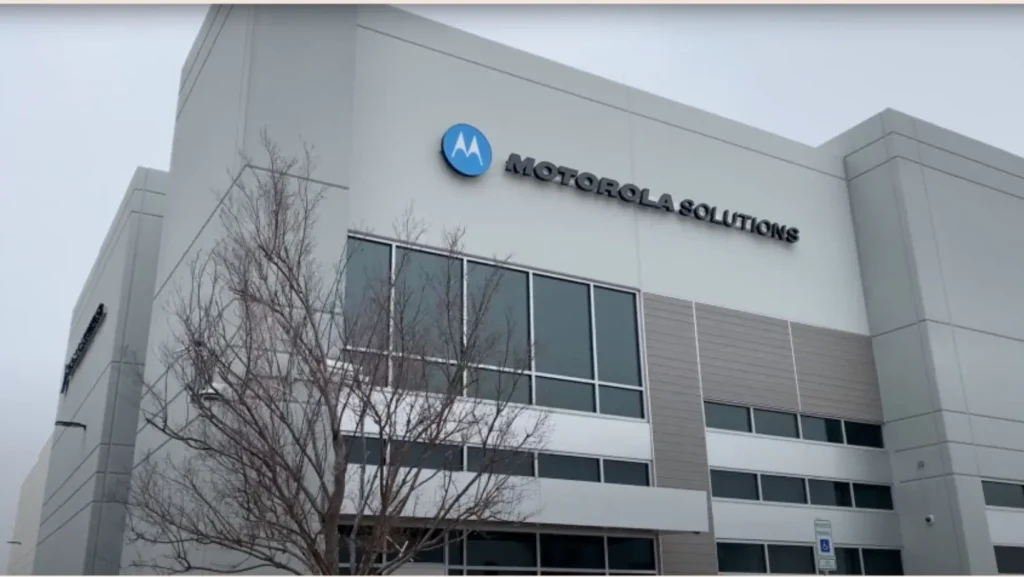Job Title: Integration Lead Specialist
Salary: Rs 4.8 Lakhs to 32.0 Lakhs
Location: India
Company: Motorola Solutions
Qualifications: Bachelor’s
Experience: 6+ years of experience
ABOUT MOTOROLA SOLUTIONS
Motorola Solutions is a global leader in mission-essential conversation answers and offerings for public safety and industrial customers. With a historical past of innovation spanning nearly a century, Motorola Solutions designs builds, and provides advanced communique and generation solutions to help clients hold communities secure and groups thriving.
The corporation’s portfolio consists of two-way radios, video safety and analytics, command center software, and venture-vital software program programs. These merchandise enable real-time information sharing and collaboration, enhancing operational performance and safety.
Motorola Solutions serves customers in more than a hundred nations, with a various client base ranging from public safety corporations to business organizations in industries including transportation, utilities, and manufacturing. They are dedicated to continuous innovation, leveraging their understanding of communications technology to cope with the evolving needs of their clients and the groups they serve.

Job Overview
An Integration Lead Specialist oversees the seamless merging of numerous software additives and structures to ensure gold-standard capability and efficiency. They manage the integration manner from planning to execution, participating closely with development groups, stakeholders, and customers to meet technical necessities and commercial enterprise objectives. Key duties consist of designing integration architectures, troubleshooting issues, implementing great practices, and making sure scalability and reliability of included structures. Strong analytical competencies, technical understanding of integration technology (which includes APIs, and middleware), and powerful conversation are critical for achievement in this function, which plays a critical component in improving organizational workflows and customer experiences.
Qualifications of an Integration Lead Specialist:
- Technical Expertise: A deep knowledge of integration technology and frameworks is critical. This consists of an understanding of APIs (Application Programming Interfaces), middleware answers (such as ESBs – Enterprise Service Buses), and statistics integration strategies. Proficiency in programming languages like Java, Python, or others relevant to integration obligations is frequently required.
- System Architecture: Experience in designing and implementing integration architectures that facilitate the drift of facts and functionality among disparate systems. This involves understanding device dependencies, scalability issues, and safety implications of integrated solutions.
- Project Management: Ability to manage integration tasks from initiation to crowning glory. This includes defining task scope, making plans for resources, placing timelines, and coordinating activities across groups to make certain seamless integration at the same time as assembly deadlines and budget constraints.
- Problem-Solving Skills: Strong analytical skills to diagnose integration problems, discover root causes, and implement effective solutions. This might also include debugging code, troubleshooting configuration issues, or resolving compatibility troubles among systems. (Integration Lead specialist)
- Communication Skills: Excellent verbal and written verbal exchange skills are essential. Integration Lead Specialists want to articulate technical concepts to non-technical stakeholders, collaborate efficaciously with improvement groups, and offer clear documentation of integration methods and requirements.
- Team Collaboration: Experience running in cross-practical groups and leading integration efforts concerning builders, testers, architects, and enterprise analysts. The potential to foster collaborative surroundings and solve conflicts to preserve integration initiatives heading in the right direction is crucial.
- Quality Assurance: Implementing and overseeing trying out tactics to ensure the reliability, overall performance, and safety of included systems. This includes growing test instances, undertaking integration testing, and coordinating user recognition testing (UAT) with stakeholders.
- Continuous Learning: Given the speedy evolution of integration technologies and first-rate practices, a dedication to non-stop gaining knowledge of and staying up to date with enterprise developments is crucial. This can also involve attending conferences, acquiring certifications, or participating in applicable online publications.
Responsibilities of an Integration Lead Specialist:

- Design Integration Architectures: Develop scalable and sturdy integration solutions that meet enterprise necessities and technical specifications. This includes assessing existing systems, defining integration factors, and deciding on appropriate technologies.
- Implementation and Configuration: Hands-on involvement in configuring middleware platforms, developing custom integrations, and implementing API interfaces among systems. Ensure adherence to integration requirements and first-rate practices.
- Project Planning and Coordination: Lead integration initiatives by means of defining venture plans, allocating assets, tracking development, and handling risks. Coordinate activities throughout multiple groups and stakeholders to make certain alignment with challenge goals.
- Technical Guidance and Support: Provide guidance to development teams on integration techniques, troubleshooting complex problems, and resolving technical demanding situations encountered during integration approaches. (Integration Lead specialist)
- Documentation and Reporting: Maintain documentation of integration strategies, configuration details, and technical specifications. Prepare regular progress reviews, and status updates, and put up implementation evaluations for stakeholders.
- Security and Compliance: Ensure that included structures observe security policies, information safety policies (together with GDPR or HIPAA), and industry requirements. Implement encryption, and authentication mechanisms, and get the right of entry to controls as necessary.
- Performance Optimization: Monitor the performance of included structures, identify bottlenecks, and optimize system throughput and response instances. Conduct overall performance tuning and ability planning physical activities to preserve machine scalability.
- Training and Knowledge Sharing: Conduct training sessions for group individuals and end-customers on new integration answers and technology. Share knowledge and satisfactory practices to enhance the general competency of the agency in integration methodologies.
Apply Now
Other Job’s
Data & AI Engineering – Data Engineer





